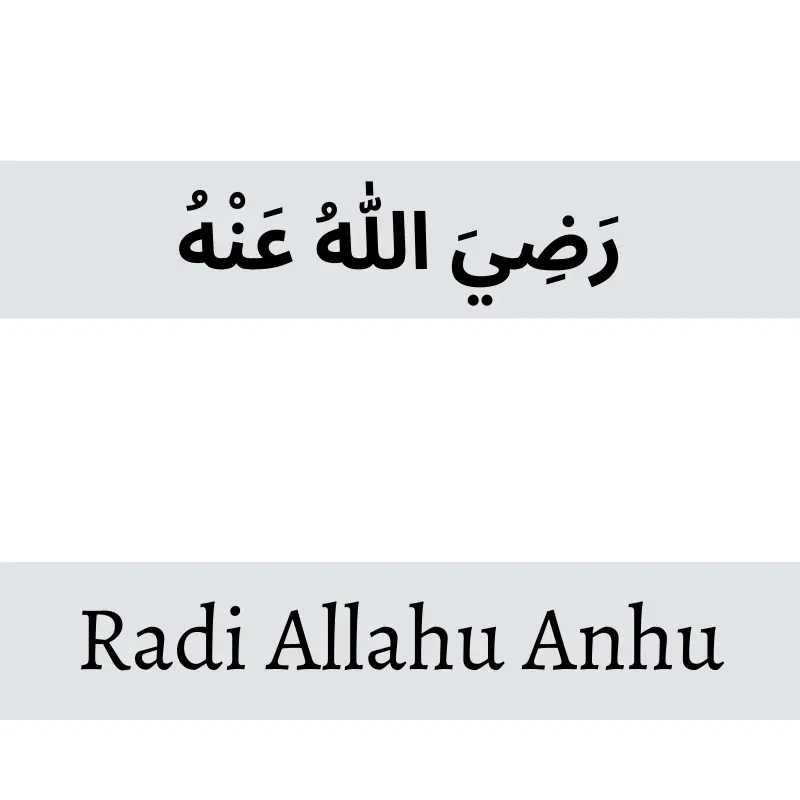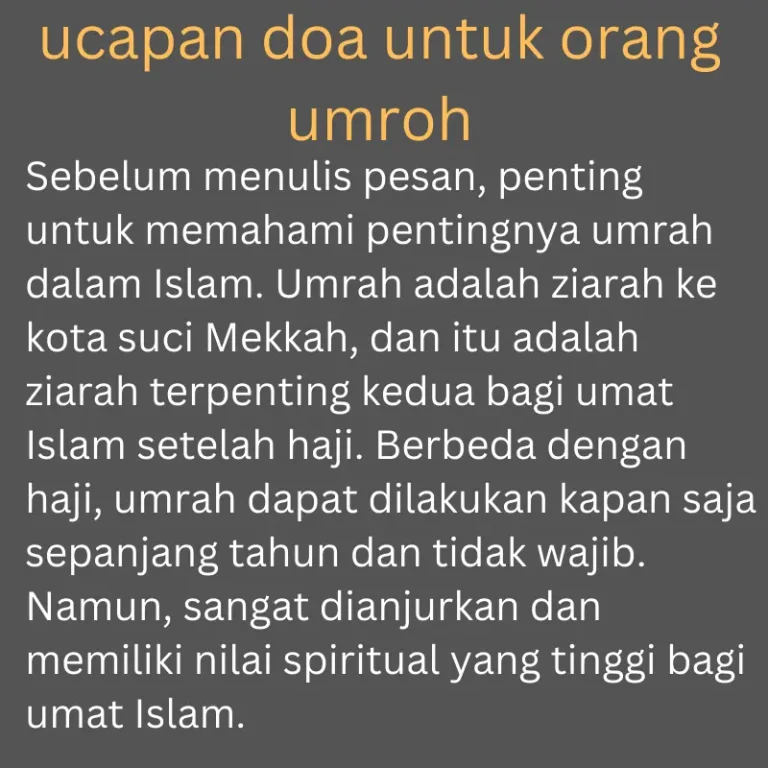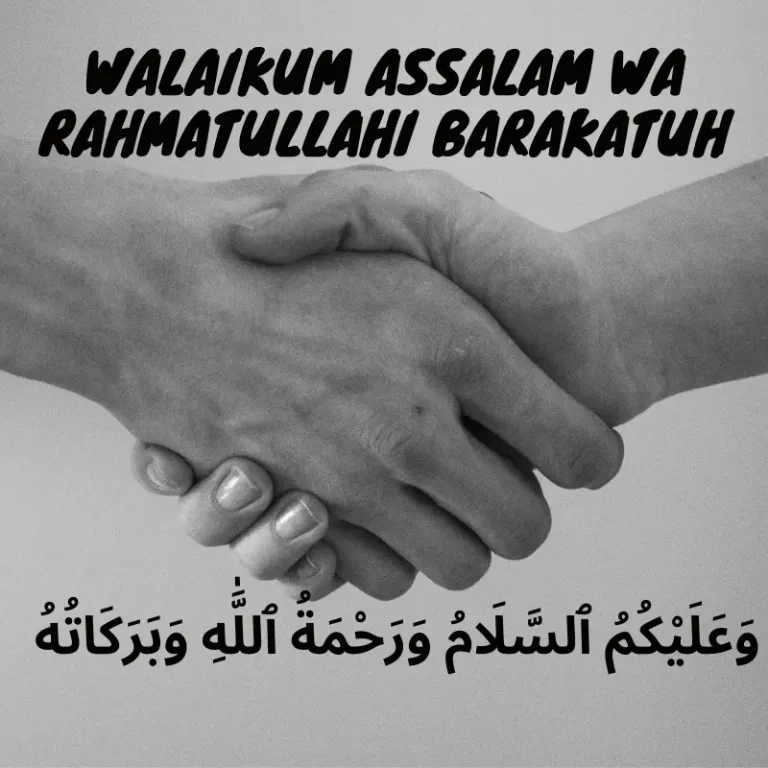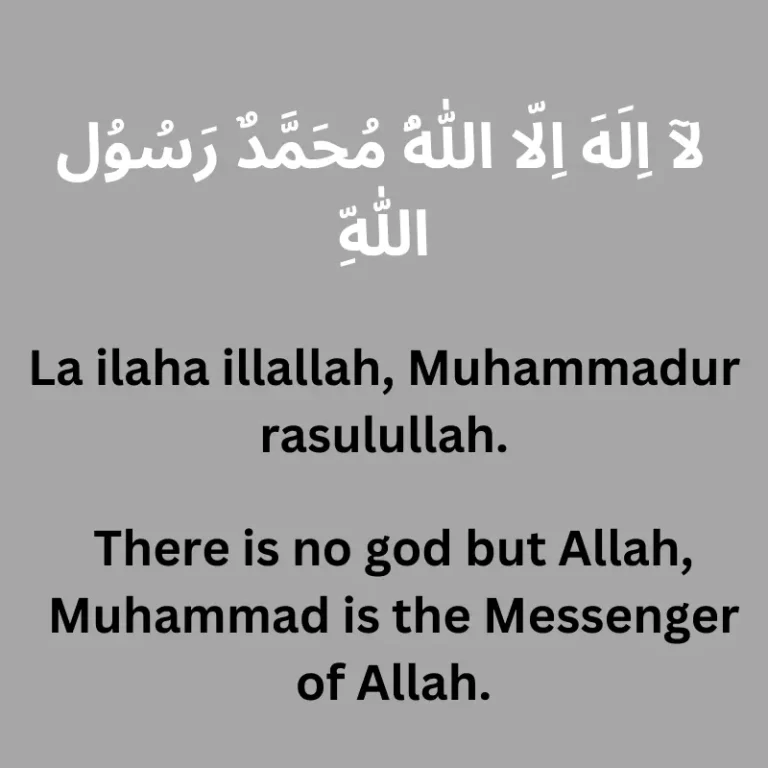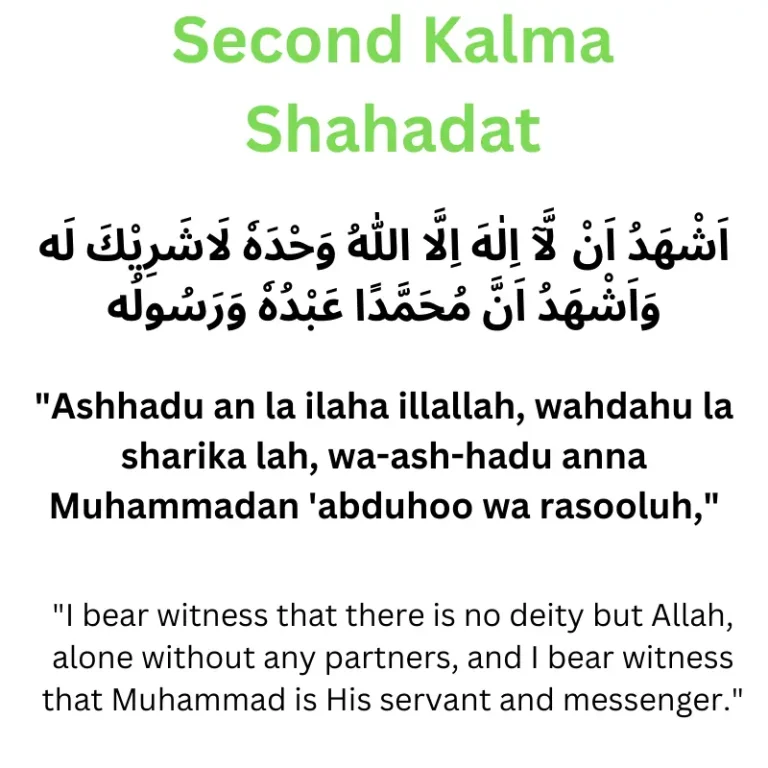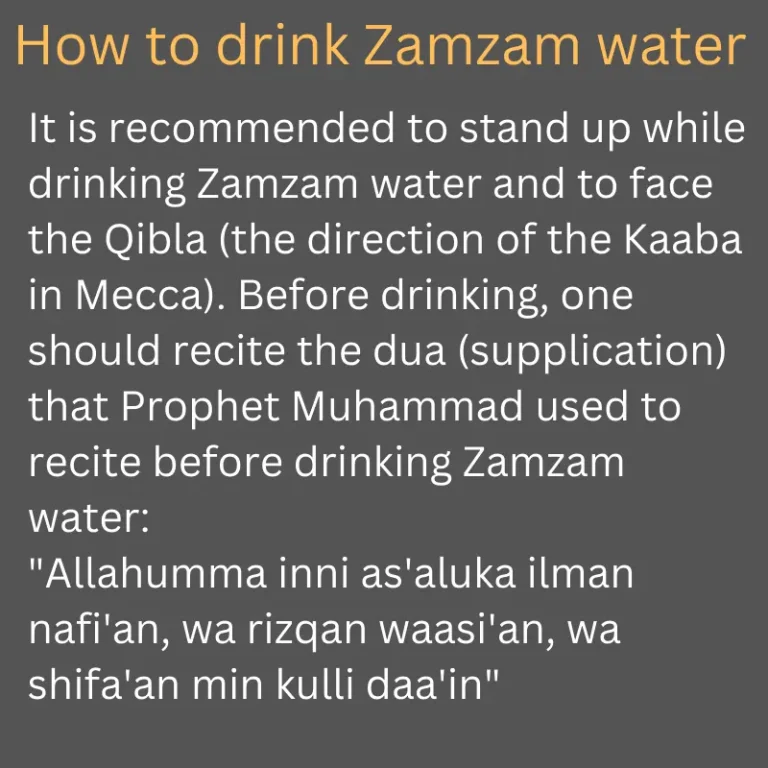Radi Allahu Anhu in Arabic, Meaning & when to say
Radi Allahu Anhu, a commonly used phrase among Muslims, holds significant importance in Islamic traditions. It encapsulates a deep sense of respect and reverence for individuals, particularly the companions of the Prophet Muhammad (peace be upon him). In this article, we will delve into the meaning of “Radi Allahu Anhu” in Arabic, its spiritual significance, and the appropriate occasions for its usage.
Radiallahu Anhu in Arabic
رَضِيَ اللهُ عَنْهُ
Radi Allahu Anhu Meaning
“Radi Allahu Anhu” (رضي الله عنه) is an Arabic phrase that translates to “May Allah be pleased with him.” It is commonly used by Muslims after mentioning the name of a male companion of the Prophet Muhammad (peace be upon him), also known as a Sahabi, as a sign of respect and blessings.
The phrase is often abbreviated as “R.A.” in English writings, and it is used to show reverence when speaking about or referring to the companions of the Prophet Muhammad. Muslims use this phrase as a way to invoke Allah’s blessings and approval upon these noble individuals. It is a gesture of love, admiration, and respect for the early followers of Islam who played significant roles in spreading the message of the Prophet and preserving the teachings of the religion.
For example, if you mention the name of a companion like Abu Bakr, Umar, Uthman, or Ali, you would follow their name with “Radi Allahu Anhu” as a way to acknowledge their high status in Islam and seek Allah’s favor for them.
Difference Between Alai his-salam and Radi Allahu Anhu
In Islamic tradition, “Alaihissalam” and “Radi Allahu Anhu” are honorific phrases used after mentioning the names of significant figures, especially prophets and companions of the Prophet Muhammad (peace be upon him). They are used to show respect and reverence for these individuals. However, these phrases have distinct meanings and usage:
-
Alaihissalam (عليه السلام):
- This phrase is used after mentioning the names of prophets in Islam, such as Adam, Noah, Abraham, Moses, Jesus, and Muhammad (peace be upon them all).
- “Alaihissalam” translates to “peace be upon him” in English.
- It is a way to invoke blessings and peace upon the mentioned prophet, recognizing their importance in spreading the message of God to humanity.
-
Radi Allahu Anhu (رضي الله عنه):
- This phrase is used after mentioning the names of the companions of the Prophet Muhammad (peace be upon him), who were his close followers, friends, and supporters during his lifetime.
- “Radi Allahu Anhu” translates to “may Allah be pleased with him” in English.
- It is a way to express respect and supplicate for the companions’ elevated status in the eyes of Allah due to their devotion to Islam and their contributions to the early Muslim community.
In summary, “Alaihissalam” is used for prophets, while “Radi Allahu Anhu” is used for the companions of the Prophet Muhammad. Both phrases reflect the esteem and reverence Muslims hold for these figures in Islamic history.
For Female & Plural Variation
The phrase “Radi Allahu Anhu” (رضي الله عنه) is an Arabic expression commonly used after mentioning the names of male companions of the Prophet Muhammad (peace be upon him) to convey blessings and respect. When addressing female companions or using the plural form for companions, the appropriate variations are:
-
For a Female Companion (singular):
- In Arabic: رضي الله عنها (RadiAllahu Anha)
- In English: May Allah be pleased with her
-
For Companions in Plural:
- In Arabic: رضي الله عنهم (RadiAllahu Anhum)
- In English: May Allah be pleased with them

